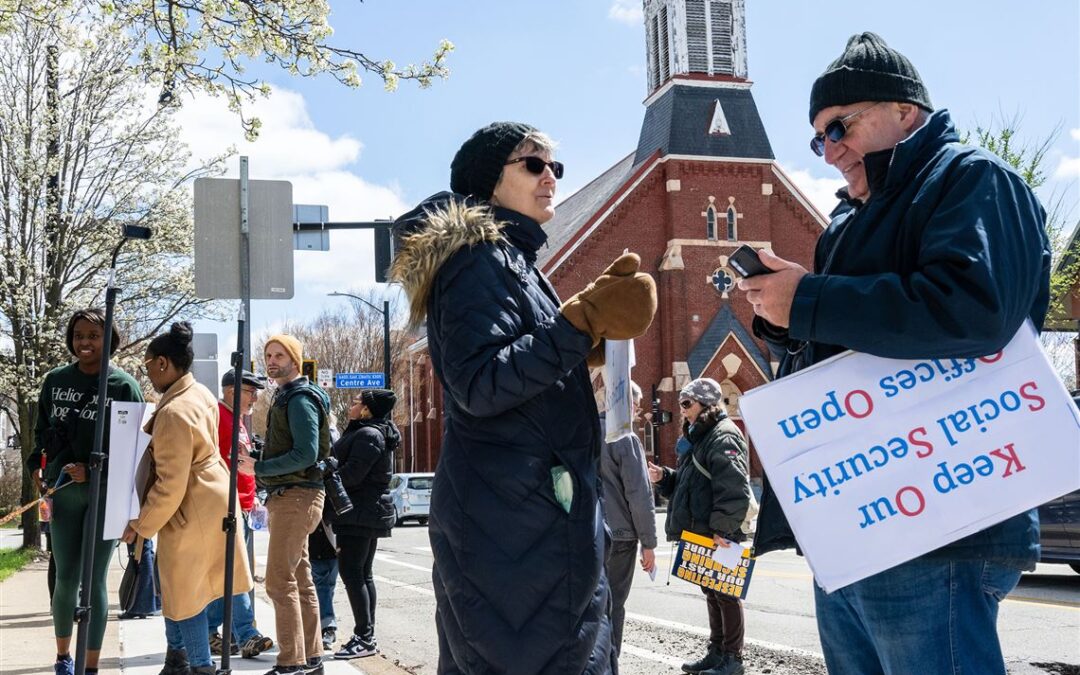In the fall of 1981—at least I believe it was 1981—the marxist Critical Legal Studies Movement—CLS—came to New Haven, Ct. to debate the legal liberalism of the Yale Law School faculty, where CLS had never found a place among the faculty. The Marxist challenge was that the rule of law was not neutral but was a mask for the protection and perpetuation of entrenched hierarchical privilege—of the rich, of whites, of men and so forth.
I watched this debate in horror. I had assumed that my former teachers at Yale would easily fend off this challenge. But it turned out that legal liberalism was empty and could not respond convincingly to this critique. My teachers were unable to capably defend the rule of law.
Now fast forward 42 years to the 2024 Annual Meeting of the American Association of Law Schools in D.C. in early January. In an eerie echo of 1981, the challenge to the rule of law was repeated. The site of the challenge this time was a panel on Jan. 5 entitled “Teaching Stare Decisis,” which was composed of five well-known American law professors.
Stare decisis means literally, “to stand by what is decided.” The phrase refers to decision according to prior judicial decisions—called precedent—that is the hallmark of the rule of law.
The question for the panel was how to teach constitutional law as in accordance with the rule of law given the determination of the current conservative majority on the Supreme Court to overturn a great deal of precedent—what Harvard law professor Noah Feldman calls The Court’s Conservative Constitutional Revolution. The public is aware that the Court has overruled the right to choose abortion, but a lot of other constitutional law has also been changed, especially in the areas of gun rights and religion.
If constitutional law depends on nothing other than who wins the last Presidential election, then you have a government of men rather than law, which Chief Justice John Marshall in Marbury v. Madison viewed as the antithesis of the rule of law. In that event, constitutional law is just another species of politics.
Indeed, that very position of skepticism was presented on the AALS stare decisis panel by my good friend Eric Segall, a professor of law at Georgia State University. As Segall tells the story, he wrote a book years ago, in 2012, that described the Court as essentially a political body that made the law up as it went along—Supreme Myths: Why the Supreme Court is not a Court and the Justices are not Judges. For ten years, Segall was studiously ignored. Now, everyone sees the issue.
Since the 1990s, the conservative response to the charge that the Court is doing politics has been a recourse to some form of textual and/or historical interpretation of the Constitution. We call this movement originalism. Its popular champion was Justice Antonin Scalia. Scalia regarded the right to abortion in Roe v. Wade as resting on nothing more than the subjective value judgments of the Justices who decided the case. Scalia argued that returning to the objective analysis of text and history would return the Court to doing law rather than politics.
The originalist position was represented on the panel by Lawrence Solum, a professor of law at the University of Virginia. Solum’s problem was, as Segall pointed out, that there is no convincing originalist theory of stare decisis. The constitutional law of free speech, for example, has evolved over time far beyond the original meaning of the First Amendment that there should be no censorship. Free speech when the Constitution was adopted did not provide much protection from punishment for speech we take for granted today as protected, such as harsh and sometimes false criticism of government officials. No one wants to go back to the law of 1791. But if you don’t, then you are just picking and choosing value judgments.
This problem for originalism should have created an opening for the living constitutionalists on the panel: Richard Fallon, professor of law at Harvard, and Tara Grove, professor of law at The University of Texas. Living constitutionalism is basically what was practiced on the Court during most of the 20th Century. It interprets the Constitution in common law, case by case, fashion purporting to rely on precedent and the needs of the day, rather than, primarily, on text or history. The process is similar to the development of the common law in English legal history.
From Segall’s skeptical perspective, it is not true, and has never been true, that constitutional law develops in a precedent dependent, case by case way. Rather, the actual history of constitutional law is a series of wild swings in which the Justices often overrule or ignore prior cases and set off in a new direction. These swings happen more often than not and all the Justices, whatever their ideological commitments, engage in them. Segall thus dismissed living constitutionalism.
How did Fallon and Grove respond to Segall’s skeptical challenge? Fallon emphasized the process values and direction that the Court gives to the lower courts. The system functions as a coherent legal culture at each particular moment. This account is true enough, but it does not defend living constitutionalism as an ongoing development.
Grove emphasized the commitment of her students to political struggle. The law has changed in the past and it can change in the future. Grove encourages her students to participate in that change. Of course, this does not rebut the charge that law is politics, but emphasizes and celebrates it.
For me, neither Fallon nor Grove properly defended living constitutionalism. My disappointment was similar to my reaction when my former professors could not defend the rule of law against Marxism in 1981.
The response to a skeptic like Segall should have been grounded in the search for justice based on reason. The masters of the common law thought that over time the law “worked itself pure” in just that way.
Yes, there have been changes in constitutional law over time, but they have not been changes at random. The law of free speech has moved America in the direction of a more open and free society. That is why no one wants to go back.
Similarly, the expansion of equal protection to include the rights of women to be treated equally and to prohibit racial segregation, while of uncertain historical justification, were morally inevitable. No one would reverse them either.
The issue of fundamental justice did arise as a question to the panel from the audience. But the participants were only willing to dip a toe into those waters.
What living constitutionalism requires to be coherent is an understanding of justice as real and the pull of justice as reason moving the opinions of the Justices over time. This brings us to the thought of Dr. Martin Luther King, Jr., on the day that honors his legacy, that the arc of the moral universe is long, but it bends toward justice. The Court is by no means the most important actor in that movement. But the Court must play its part. That is a defense of living constitutionalism that makes sense.
American law professors have become relativists and nihilists, not by what they profess—they often deny being moral skeptics—but by their unwillingness to commit to truth and justice as the basis for law. And they have been acting out this unwillingness not just recently but since the 1980s. This is why living constitutionalism has fallen into disregard.
No one can say that the pursuit of justice will be, or has been, an easy one. Even if we feel that the law does gradually move in the direction of justice, there will be the stops and starts to which Segall adverts. The law does not develop smoothly.
Nevertheless, the pursuit of justice is our task. Its fulfillment is our promise. Its defense is our obligation. On this Martin Luther King, Jr., Day, we owe his memory nothing less.






0 Comments